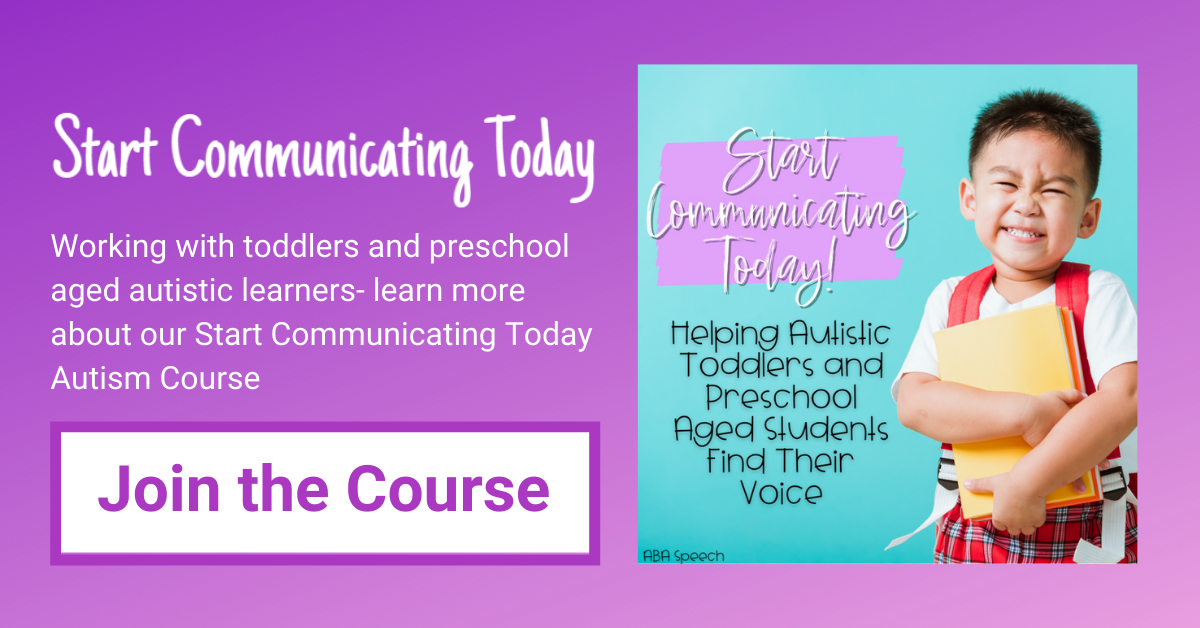“Well, I guess you better figure it out”....
Episode #092: Culturally Responsive Intervention For Autistic Learners (Maria Davis-Pierre)
A
s therapists, we know that every client is different when it comes to goals, abilities, and needs but how often are we checking up on our cultural awareness for each individual? Maria Davis-Pierre is a mental health counselor and the founder of Autism in Black. As a mother with two autistic children and autism herself, Maria understands the stigma associated with the diagnosis and is on a mission to educate on inclusive, culturally responsive therapy for black families and other underrepresented cultures.
“Is there anything culturally we should know about you?” A question Maria highlights as one of the best questionnaire form inclusions she has seen when it comes to starting therapy. As a professional and therapist working with unique individuals from all cultures and backgrounds, there are no details too small to incorporate into therapy that fit your client’s culture. For example, bring culturally relevant props for a therapy lesson or check your understanding of cultural concepts that could be a typical household routine for one culture but seen as a learning deficit in another.
Whether props, books, flashcards, etc. be cognisant of your materials and the reflection of your client within them. It is important for black children to see themselves reflected in their learning materials to not only understand but also stay engaged. It is okay if you’re not an expert on every culture and every family. Ask questions, be open, and create a dialog so that you can continue to learn and support your clients in a culturally responsive way.
What to keep in mind when getting started with culture-responsive therapy:
- It’s okay to be uncomfortable, check your bias. Growth comes from uncomfortability.
- Use representative tools and materials.
- Be curious and ask questions. Life long learning process.
- Be open, honest, and admit when you make mistakes.
As therapists and professionals are number one, the goal is to always help the children and culturally responsive therapy is a really important but often forgotten piece of that. Maria shares some great tips and insights for professionals to consider. You can find out more about her work on the Autism in Black website.
#autism #speechtherapy
Today’s Guest:
When it comes to breaking down barriers related to autism in the Black community, no one does it with more passion and clarity than Maria Davis-Pierre, a licensed mental health counselor, autism awareness advocate and founder of Autism in Black. With a keen ability to educate and guide communities in desperate need of resources and support, Maria has transformed the lives of countless Black families parenting autistic children. As the parent of two autistic children, and being autistic herself, Maria understands firsthand the isolation, shame and stigma that often accompanies an autism diagnosis.
Armed with that knowledge, she uses her professional expertise to connect with and empower Black parents of autistic children. Through Autism in Black, she also provides essential training to organizations so they can more effectively serve the Black disability community.
A dynamic, in-demand speaker, Maria has conducted many powerful workshops and lectures on topics related to autism including autism in the Black community, the intersection of race and disability, and self-care.
What’s Inside:
- How can we as professionals be more culturally responsive?
- Tips and strategies for being culturally responsive and inclusive in your therapy sessions?
- How to incorporate your clients’ unique cultural needs?
- Check your understanding: Learning Deficit vs. Cultural Preference
Mentioned In This Episode
—Autism in Black
—ABA Speech: Home
—Register for the free SLP in an ABA Setting Mentorship webinar
Rate, Review & Subscribe
If you found this podcast helpful, please consider rating and reviewing my show! This helps me to support support more people — just like you!
If you have not done so already, subscribe to the podcast. This ensures that you do not miss an episode!
Listen on
Apple Podcasts
Listen on
Stitcher
Subscribe
via Email
You Might Also Like…
Episode #185: Replay: The Power of Joint Attention
Enjoy this replay from episode 62. Joint attention is...
Episode #184: 5 Tips For Dealing With Contentious IEP Meetings
Conflict is part of what we do...

